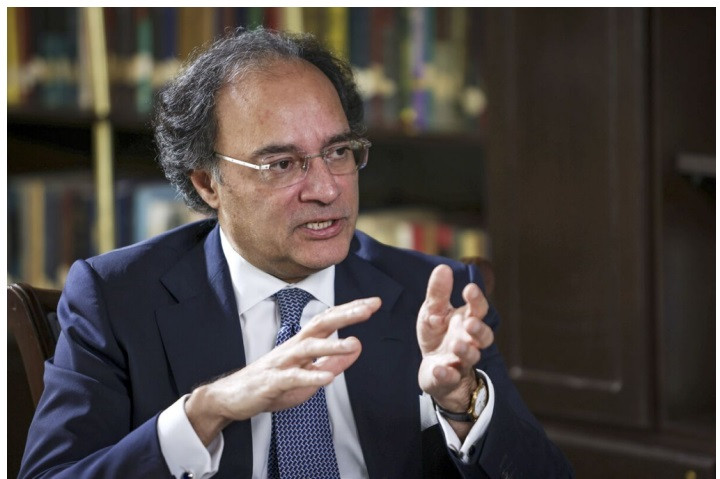US resolution unrelated to IMF Programme: FM Augranzeb
ISLAMABAD:
Finance Minister Muhammad Aurangzeb has said that the government has decided to abolish the concept of ‘non-filers’.
Addressing mediapersons in capital Islamabad, the finance minister said he understood that the salaried class was particularly experiencing financial strain from new taxes. He pledged to offer relief to salaried individuals once any financial respite becomes feasible.
He also argued against the category of “non-filers,” expressing confidence that government initiatives will eventually make the cetegorisation obsolete.
Highlighting key economic improvements, he stated that the country’s foreign exchange reserves stand at $9 billion, and inflation has reduced from 38% to 12%.
The repatriation of dividends to international companies, which is crucial for attracting foreign direct investment, is complete.
The FM revealed that the World Bank approved $1 billion for the Dasu project, and the International Finance Corporation (IFC) sanctioned $400 million for PTCL, to be received in the next fiscal year. The Federal Board of Revenue (FBR) achieved tax collections of Rs 9.3 trillion, reflecting 30% growth.
Emphasising macroeconomic stability, he noted the FBR’s complete digitisation, which will enhance efficiency and curb corruption through technological advancements.
Following this, Aurangzeb assured that all tax refunds up to June 30, 2024, amounting to over Rs 50 billion, would be disbursed within the next two to three days, along with the Duty Drawback of Local Taxes and Levies (DLTL) refunds. The FM mentioned that 42,000 retailers are now registered and will be taxed from July 1, reiterating his stance on eliminating the ‘non-filers’ concept.
Addressing the inflation-struck masses, the finance minister said, “I completely understand the stress that people from different sectors feel about additional taxes; I completely empathise and sympathise, but we need to work for it.”
He emphasised the government’s commitment to reducing the burden on common people and businesses by curbing leakages and improving the management system.
Announcing a new pension system for civil employees effective immediately, with the military to follow next year, Aurangzeb expressed optimism about the upcoming agreement with the IMF, expected in July.
“The IMF program is our assurance in terms of macro stability. We are taking it forward; it is inevitable. I’m very optimistic that we’ll be able to take it through the finish line for an Extended Fund Programme which is going to be larger and longer in nature,” he told reporters.
The cash-strapped federal government adopted a Rs 18.9 trillion budget laced with tax-raising measures to secure a new IMF bailout after almost defaulting last year.
The finance minister concluded by stating that the recent resolution on Pakistan in the US Congress is unrelated to the IMF program, and discussions with IMF officials during his recent US visit were satisfactory.
This final IMF program will span three years and be valued between $6 to $8 billion.

